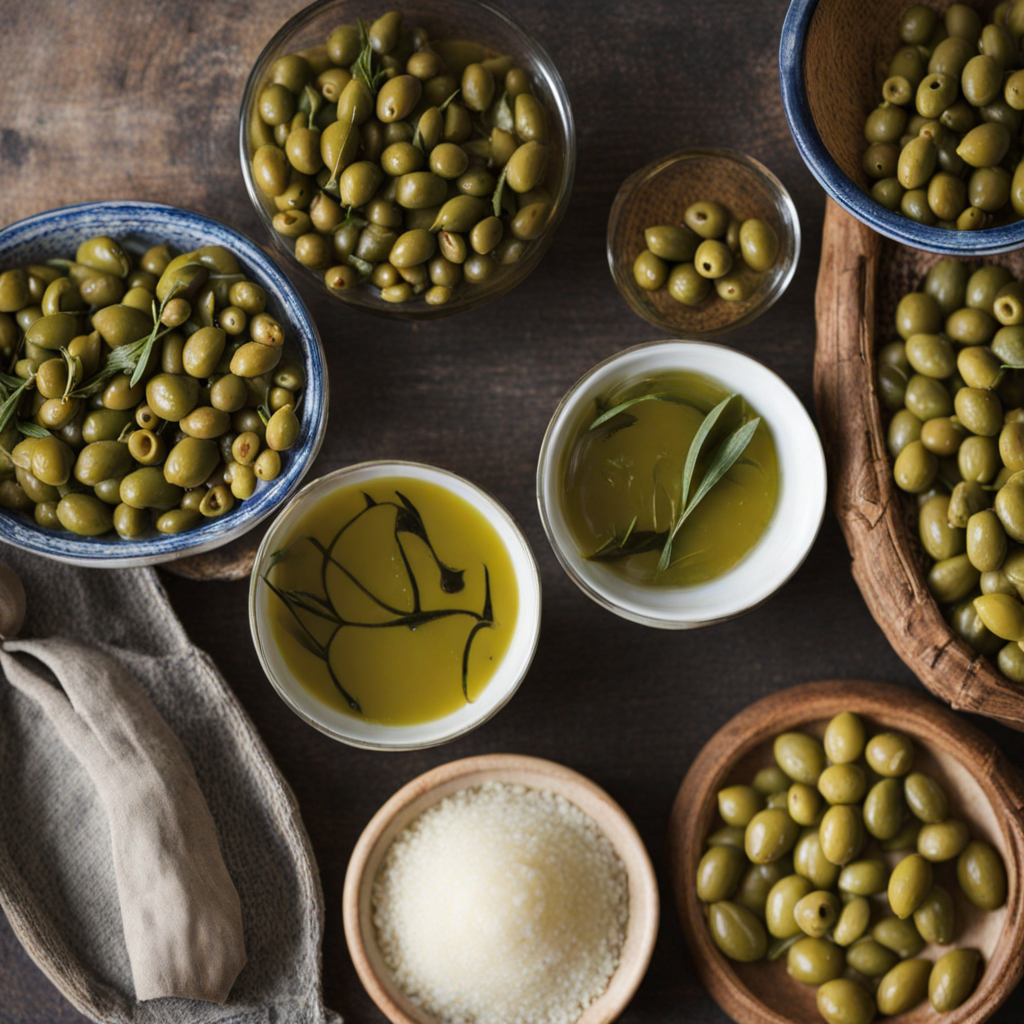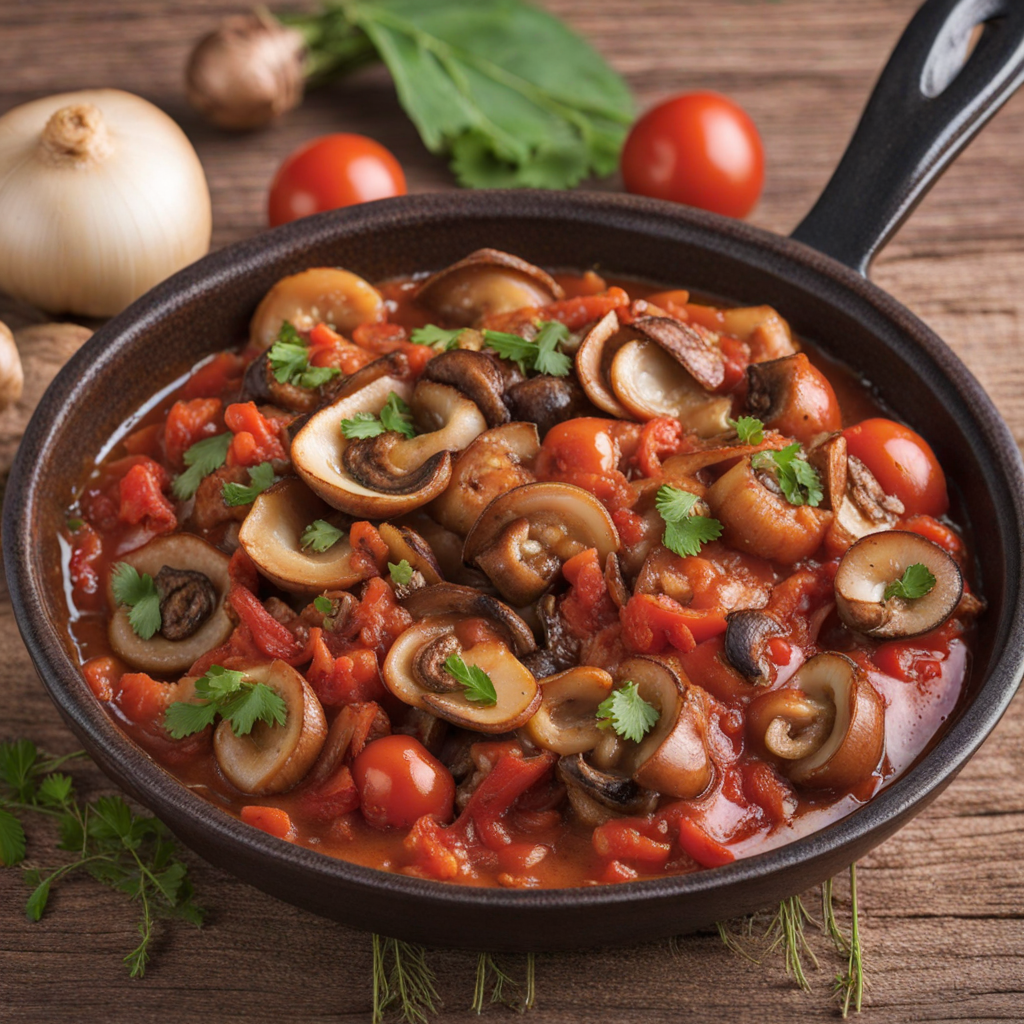Amavuta ya Elayo
Amavuta ya Elayo, a traditional Rwandan dish, is a celebration of local ingredients and flavors that encapsulates the essence of Rwandan cuisine. This dish primarily features a rich, savory sauce made from the oil extracted from the Elayo nut, a unique nut indigenous to the region. The oil is known for its nutty aroma and smooth texture, which elevates the overall taste profile of the dish. The sauce is often combined with a variety of vegetables, such as sautéed greens, carrots, and peppers, creating a vibrant and colorful plate that is as visually appealing as it is delicious. In addition to its delightful flavor, Amavuta ya Elayo is often paired with staple Rwandan accompaniments like ugali or plantains. The pairing allows the rich sauce to be absorbed, enhancing each bite with a depth of flavor. The dish is typically enjoyed during communal meals, emphasizing the importance of sharing and togetherness in Rwandan culture. Each bite of Amavuta ya Elayo is a journey through the lush landscapes of Rwanda, offering a taste of the earth and the warmth of its people. Vegetarians and meat-lovers alike can find joy in Amavuta ya Elayo, as it can be easily adapted to include proteins such as grilled chicken or fish, allowing for a personalized touch. The nutty flavor of the Elayo oil complements both the earthiness of vegetables and the richness of meats, making it a versatile dish that caters to various palates. As you explore this unique Rwandan dish, you'll discover a harmonious blend of textures and flavors that showcases the beauty of Rwanda's culinary heritage.
How It Became This Dish
The History and Cultural Significance of Amavuta ya Elayo in Rwanda #### Origins Amavuta ya Elayo, translating to "the oil of the Elayo," is a traditional food product from Rwanda that holds both culinary and cultural significance. Its origins can be traced back to the indigenous communities of the region, where the cultivation of oil-producing plants was prevalent. The word "Elayo" itself refers to the traditional method of extracting oil, primarily from the nuts of the *Tetracarpidium conophorum*, commonly known as the African walnut or bush nut. Historically, Rwandans have utilized various local nuts and seeds to produce oils that were not only used for cooking but also for medicinal and ritual purposes. The Elayo oil is notable for being extracted through a meticulous process involving roasting, grinding, and pressing the nuts. This artisanal method of oil extraction is a testament to the skills passed down through generations, reflecting the ingenuity of Rwandan women who typically take on the role of food preparation and oil production. #### Cultural Significance Amavuta ya Elayo is more than just a food product; it embodies the cultural identity and traditions of the Rwandan people. In Rwandan culture, food is an integral part of social life and community bonding. Sharing a meal, especially one that incorporates Amavuta ya Elayo, signifies hospitality and the importance of togetherness among families and communities. The preparation and consumption of Amavuta ya Elayo are often associated with cultural rituals and celebrations. For instance, it is a staple at weddings, communal gatherings, and festive occasions. The oil is used in various dishes, ranging from traditional stews to fried snacks, enhancing flavors and providing a rich, nutty aroma that is characteristic of Rwandan cuisine. Moreover, the oil is sometimes incorporated into traditional medicine practices, where it is believed to have health benefits. The nutritional value of Amavuta ya Elayo, rich in healthy fats and antioxidants, has led to its use in promoting well-being within communities. This duality of culinary and medicinal uses underscores the holistic approach to food within Rwandan culture. #### Development Over Time Over the years, the production and consumption of Amavuta ya Elayo have evolved, influenced by various socio-economic factors. In pre-colonial Rwanda, the reliance on traditional methods of oil extraction ensured that this practice was sustainable and aligned with the community's agricultural cycles. The nuts were harvested during specific seasons, ensuring a steady supply that supported local economies. The advent of colonialism in the late 19th and early 20th centuries brought significant changes to Rwanda's agricultural practices. European powers introduced cash crops and modern farming techniques, which diverted attention from traditional methods. This shift impacted the cultivation of indigenous plants, including those used for Amavuta ya Elayo. Although the oil continued to be produced, it began to compete with imported oils, such as palm and vegetable oils, which were marketed as more accessible and convenient. However, the post-colonial period saw a resurgence of interest in traditional foods like Amavuta ya Elayo. As Rwandans sought to reclaim their cultural heritage following years of turmoil and conflict, there was a renewed appreciation for local food practices. Health movements advocating for organic and locally sourced foods further fueled this revival. The nutritional benefits of Amavuta ya Elayo became a focal point in discussions around food security and health, prompting increased production and consumption. In recent years, the Rwandan government and various non-governmental organizations have recognized the importance of traditional foods in promoting national identity and economic development. Initiatives aimed at supporting local farmers have boosted the cultivation of oil-producing plants, ensuring the sustainability of Amavuta ya Elayo. Furthermore, these efforts have led to the establishment of cooperatives and community programs focused on oil production. This has not only preserved traditional methods but has also provided economic opportunities for women, who play a crucial role in the production process. #### Modern-Day Relevance Today, Amavuta ya Elayo is experiencing a renaissance, with its presence being felt both within Rwanda and in the global food market. As international interest in African cuisines grows, Rwandan dishes featuring Amavuta ya Elayo are making their way into restaurants and culinary festivals around the world. Chefs are increasingly incorporating this unique oil into modern dishes, merging traditional flavors with contemporary culinary techniques. The rise of health-conscious consumers has also played a significant role in the popularity of Amavuta ya Elayo. With its high nutritional value and natural extraction process, it is being positioned as a healthier alternative to more processed oils. This aligns with global trends favoring organic and unrefined food products, allowing Amavuta ya Elayo to carve out a niche in the market. In addition, the oil's cultural significance continues to resonate with younger generations who are eager to connect with their heritage. Initiatives to promote traditional cooking methods and local ingredients are helping to educate the youth about the importance of preserving their culinary identity. Cooking schools and workshops focused on traditional Rwandan cuisine often highlight Amavuta ya Elayo, ensuring that future generations appreciate and continue the legacy of this significant food product. #### Conclusion Amavuta ya Elayo is a rich tapestry woven into the culinary and cultural fabric of Rwanda. Its origins reflect the resourcefulness of indigenous communities, while its evolution showcases resilience in the face of changing socio-economic landscapes. As a symbol of hospitality, health, and heritage, Amavuta ya Elayo not only tantalizes the taste buds but also serves as a reminder of the deep connections between food, culture, and identity. Through the continued appreciation and promotion of this traditional food, Rwandans are ensuring that Amavuta ya Elayo remains a cherished part of their culinary heritage for generations to come.
You may like
Discover local flavors from Rwanda







